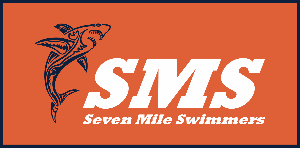🥗 Nutrition Tips for Swimmers (Ages 8–18)
Swimming is a demanding sport that requires energy, strength, and focus. Good nutrition fuels training, supports growth, and speeds up recovery. Here are key tips for young swimmers:
🥪 Everyday Eating
Fuel your body for training and growth
-
Balanced meals: Aim for a mix of carbohydrates (energy), protein (muscles), and healthy fats (long-term fuel) in every meal.
-
Protein power: Include a source of protein with every meal and snack to help build and repair muscles.
-
Calcium counts: Add milk, yogurt, or cheese to support growing bones.
-
Colorful plates: Include fruits and vegetables for vitamins, minerals, and antioxidants to keep the immune system strong.
-
Variety matters: Rotate different colorful fruits, veggies, and whole grains to get a wide range of nutrients.
-
Consistent meals: Eat 3 main meals and 2–3 snacks daily to keep energy steady, especially during heavy training weeks.
💧 Hydration
Stay hydrated before, during, and after swimming
-
Drink often: Dehydration can happen even in the pool. Drink water throughout the day, not just at practice.
-
Practice & meets: Have a water bottle on deck; sip before, during, and after swimming.
-
Sports drinks: Only needed if practices are longer than 60 minutes or especially intense — otherwise water is best.
🏊♀️ Pre-Practice & Pre-Race Fuel
Time your meals to feel your best
-
Timing matters: Eat a carb-rich snack 1–2 hours before swimming — like a banana, oatmeal, whole-grain toast, or yogurt.
-
Avoid heavy meals right before practice as they can cause stomach upset.
🏁 Recovery After Practice/Meets
Refuel muscles within 30–60 minutes
-
Eat within 30–60 minutes: A combo of carbs + protein helps muscles recover and refuel energy stores.
-
Great options: chocolate milk, turkey sandwich, fruit with nut butter, Greek yogurt with berries.
⚖️ Healthy Habits
Support your performance and growth
-
Listen to your body: Eat when you’re hungry and stop when you’re full.
-
Sleep matters: Nutrition and rest go hand-in-hand for performance and growth.
-
Plan ahead: Pack snacks and water for school, practices, and meets to avoid skipped meals.
⚡ Remember: Every swimmer is unique! For specific advice, especially during growth spurts or high-volume training, talk with your coach, a sports dietitian, or your pediatrician.
Also Check out Aquatics GB Nutrition tips here!

